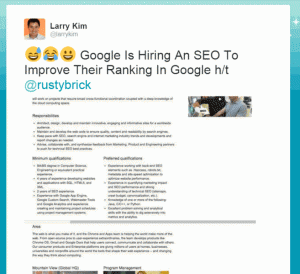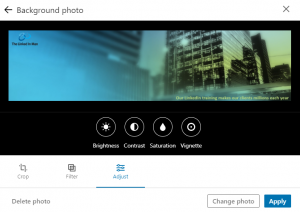By Kim Rittberg
Many professionals consider adding public speaking to their résumés either as a way to add more skills and revenue streams or as a potential career change. My path to becoming a professional speaker was through social media and content marketing. If you’d like to start getting booked for events or even considered a “thought leader,” here’s some advice from experts who’ve done it.
Use social media
I always tell my clients and students looking to grow their business to start teaching. Show your expertise. Publicly. Start creating videos and posts sharing your point of view and establishing your knowledge and credibility. People can’t hear you if you aren’t talking.
So what exactly should you post? Post videos of you adding value and sharing your knowledge, and share content that features you as a leader in your industry. For me, this means posting educational videos about how to make videos and podcasts and how to be more confident on camera. I also post footage of me teaching in real life—like guest-lecturing at Syracuse University, at the Fast Company Innovation Festival, or at a large Berkshire Hathaway Home Services real estate conference. Whether the audience is 10 students or 300 professionals, I practice the “show, don’t tell” method—showcasing that I am credible rather than just asserting it.
Solo episodes of my podcast, The Exit Interview, feature mini-master classes about marketing through videos and podcasts. I have been booked for speaking gigs directly from my podcast and as a guest on others. I also share my professional pivot from burned-out media executive who had a delivery-room epiphany to business owner—which is relatable to different audiences and event organizers.
In her book Entrepreneurial You, speaker Dorie Clark, writes, “Make yourself discoverable to conference organizers. Make people want you, and make people come to you. The metaphor that I use is ‘it’s like dropping your handkerchief so that they will pick it up.’” Clark warns of people with a laser focus on growing their speaking business: “It is a lagging indicator not a leading indicator. It is the last thing that will click into place in your business.” Clark says that once your content marketing is dialed in, it’s going to improve every metric of your business.
Cold vs “warm” pitching
Clark cautions against cold pitching saying, “the more you reach out to them, the more desperate you will look. And the less likely you will be to be effective.” Clark encourages using a warm lead, or asking someone who’s spoken at a conference before to put in a good word.
Heather Monahan, speaker and author of Overcome Your Villains, disagrees. She says, “No one’s gonna sell me better than me.” Monahan adds that if it’s a public event, let organizers know you are happy to support the event by promoting it on social media or in your newsletter.
What to charge
Expect to speak for free at the beginning to gain experience, testimonials, and social proof. Clark says if you’re relatively unknown, you may be paid between $1,000 and $2,500. Keep in mind the context of where you’re speaking. An event at a lodge in Vail has a larger budget than at the local library or Chamber of Commerce. The latter will almost certainly not pay a dime but could be a good stepping stone. Clark says that rates increase in “increments of $2,500” and that as you get more known, you may hit $15,000 and then you would raise it in $5,000 increments. Consider offering larger packages that include follow-up coaching sessions to boost your speaking income.
Multimedia communications coach Barbara Barna Abel says to keep the audience in mind: “Presuming that you have a tight, engaging talk that you deliver brilliantly, are you speaking about a subject to an audience who will pay a premium for it?”
Who to pitch
Experts agree that speaking agents won’t focus much attention on newer speakers, so aim for actual event organizers. But, one great tip from Monahan: “Go to speaker agents’ websites and start looking at the testimonials of different speakers. The name is the lead of the actual person that hired them to speak.”
Other methods she recommends include following other speakers on social media and tracking the events they’re mentioning as well as pairing up with complementary speakers.
What should go in your pitch
Clark says to make sure you have “a bulletproof, social-proof filled bio.” People need a quick way to vet you, so impress them in multiple categories: “media you’ve been featured in, books you’ve written, social media following, educational affiliations, academic institutions you’ve guest lectured or written at.” Past places you’ve worked, like being “Former-McKinsey” or “Former-Google” also count.
As for your speaker reel, Barna Abel recommends making yours “very personality driven—similar to host or expert reels for TV. It’s no longer only about your content and presentation but who you are and what you stand for.” Include text and graphics to showcase your achievements or quotes that reveal your personal philosophy,” she adds. “And include testimonials.”
Start with building your content-marketing plan to get discovered—and get speaking.
(1)









